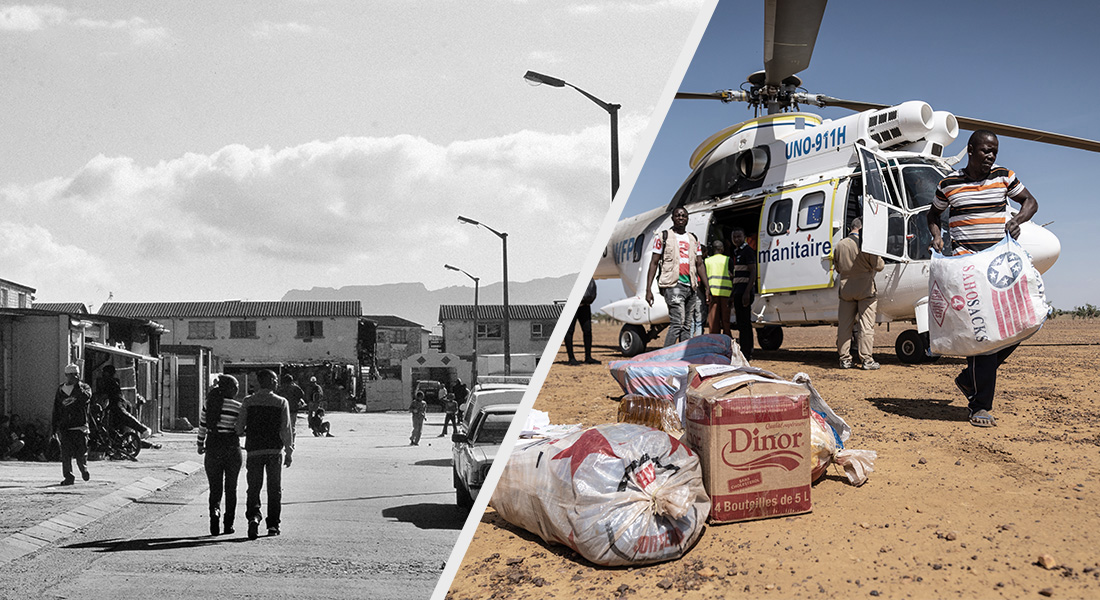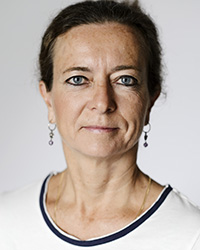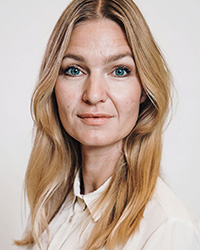New anthropological projects explore African climate and energy challenges
With support from DANIDA, two projects based at the Department of Anthropology are investigating the impact of South Africa's severe energy crisis in the townships near Cape Town, and how Burkina Faso's state administration is dealing with climate adaptation despite parallel crises.

Supported by DANIDA grants of DKK 10 million each, the Department of Anthropology will now be at the centre of two new research projects that will investigate key climate-related challenges in Burkina Faso and South Africa.
The grants have been awarded in the latest round of funding from the DANIDA Fellowship Centre under the heading 'Development in the context of climate change'.
Climate adaption in crisis-stricken Burkina Faso

Associate Professor Helle Samuelsen is leading the project 'Promoting Climate Change Adaptation in a context of multiple crises in Burkina Faso'. With the subtitle 'The role of civil servants', the project focuses on how the state civil service contributes to climate change adaptation in a country that is struggling with multiple crises at the same time:
Climate change has worsened the already difficult living conditions for the more than 20 million people living in Burkina Faso. At the same time, a chronic health crisis triggered by several epidemics has worsened the situation, and the government has lost control of large parts of the country to jihadist insurgents, resulting in approximately two million internally displaced citizens. Finally, the country's own political system is also characterised by instability, with two military coups in 2022.
The large number of crises means that civil servants play a stabilising role, but also face major challenges.
Through fieldwork and workshops, the project will explore how civil servants in three key ministries understand their roles, both as professionals and as individuals, and how they make the state apparatus work on a daily basis. Is it at all possible to promote sustainable development when a climate crisis coincides with major health and safety crises - and if so, how?
"The project will contribute with new knowledge on how the state bureaucracy actually works in an unstable country with simultaneous crises. It will also identify opportunities for implementing climate adaptation measures that can improve the living conditions of the population in the long term. Finally, the project will contribute to strengthening the research capacity of both young and experienced researchers in Burkina Faso," says Helle Samuelsen.
Energy crisis with social impact in South Africa

Associate Professor Karen Waltorp is leading the project, 'CLAIMS to Energy Citizenship in South Africa', which uses the township area of the Cape Flats on the outskirts of Cape Town as a case study to examine South Africa's national energy crisis and the possibilities for involving local citizens and city governments in the development of a greener and more resilient energy supply.
Today, poorer sections of the population suffer from skyrocketing electricity prices and an underdeveloped and often congested electricity grid that keeps people in poverty.
Through fieldwork and participatory visual methods, the project will document how the people of the Cape Flats, an area of more than three million people, struggle daily with an unreliable electricity supply and seek decentralised solutions, including solar panels.
At the same time, the project will use historical archival material to examine historic and current political processes and priorities in Cape Town, including the economic and organisational challenges of providing electricity to these areas.
The research will lead to local workshops bringing together city and regional government representatives, Cape Flats citizens and activists, researchers and other stakeholders to gather and map experiences and knowledge and co-generate solutions. In addition to a series of academic articles, a dedicated website, film, and opinion pieces will also document and communicate the work.
"Electricity, and the lack of it, is at the heart of citizenship negotiations in South Africa, currently the most unequal country in the world. The majority of citizens were denied full rights before 1994, and our project looks at how activists and local people in the Cape Flats area have made claims for citizenship both before and after the fall of apartheid, with a particular focus on electricity," says Karen Waltorp, who also points out the close collaboration with local actors to provide a forward-looking perspective:
"Ultimately, the project aims to contribute to a green transition that is socially just and sustainable. Building local research capacity and knowledge exchange between South Africa and Denmark is an important part of this."
Contact
Helle Samuelsen
Associate professor
Department of Anthropology
E-mail: H.Samuelsen@anthro.ku.dk
Phone: +45 35 32 78 77
Mobile: +45 28 15 52 33
Karen Waltorp
Associate professor
Department of Anthropology
E-mail: karen.waltorp@anthro.ku.dk
Mobile: +45 40 62 97 63
Søren Bang
Journalist
Faculty of Social Sciences
E-mail: sba@samf.ku.dk
Mobile: +45 29 21 09 73
